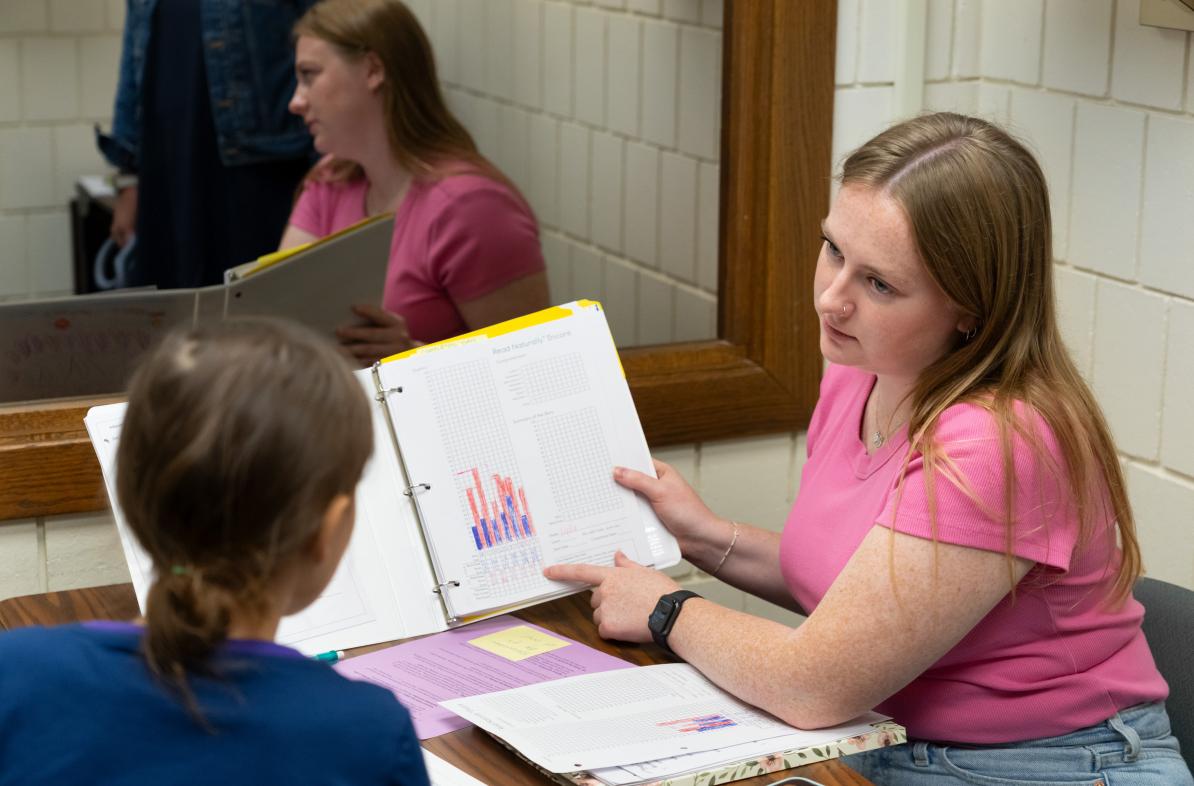Undergraduate Sammy Whyte, a fourth-year psychology major from Cary, Illinois, worked in the high school reading program during the 2023-24 academic school year and says working on reading skills with younger children this summer has been a different experience.
“It’s been really fun and educational on both sides,” Whyte says. “It’s helping the kids learn more about reading and developing those reading skills, but it’s helped me develop skills working with children, especially high-energy kids. They’re always excited to come in and I try to match that energy. I think I’ve been able to learn a lot from them, as much as they’ve been learning from this program.”
A book compiled by Axelrod, Coolong-Chaffin and Dr. Renee Hawkins of the University of Cincinnati was recently published by Routledge Press. “Reading Intervention Case Studies for School Psychologists” outlines evidence-based interventions based, in part, on Blugold students’ work in the Academic Intervention Clinic.
“The idea for the book came from our students working with kids in the community,” Axelrod says. “When we were thinking about the different topics in the book, a lot of it came from what we saw when we watched the undergraduates working with kids trying to enhance their reading.”
Coolong-Chaffin calls the book a good resource with proven strategies for schools searching for ideas to help struggling readers. She added the strategies will be especially relevant with Wisconsin’s new early literacy law Act 20 requiring schools to identify students and provide individualized support for those students in need.
“We know that if kids are not reading by the end of third grade they have poorer outcomes overall – higher dropout rates, less educational attainment overall, poorer job attainment – so if we can close that gap earlier, it’s very important,” Coolong-Chaffin says. “Finally, slowly, within the field of education we are working to do a better job with a problem we’ve known existed for a long time.”






